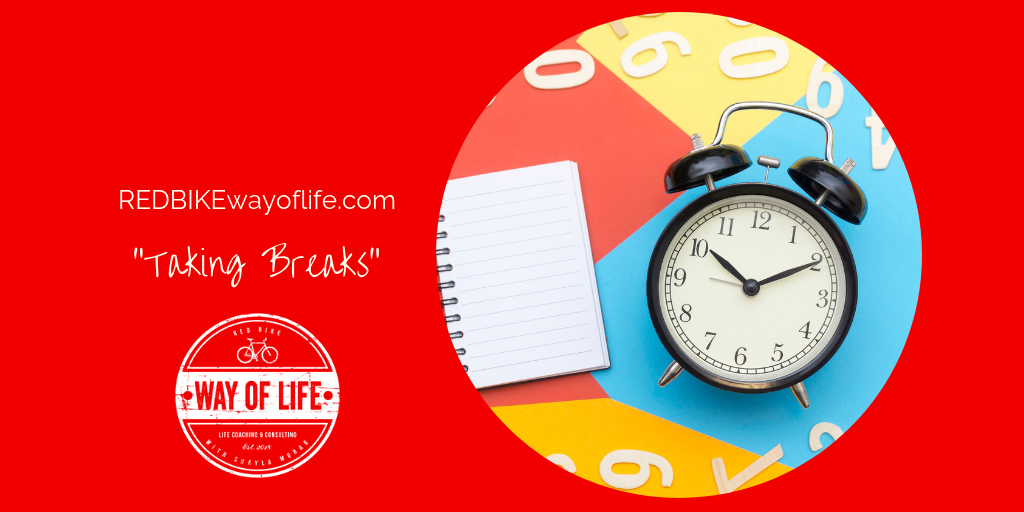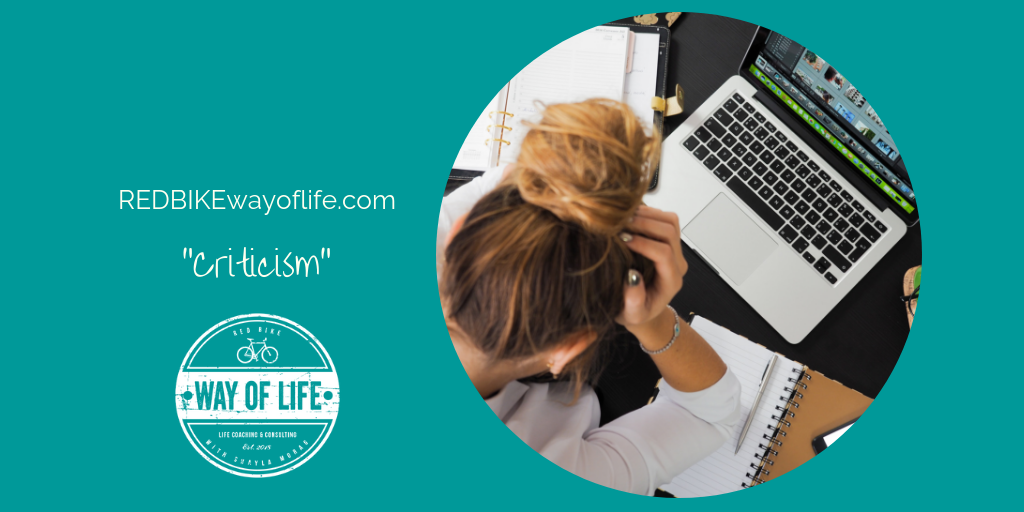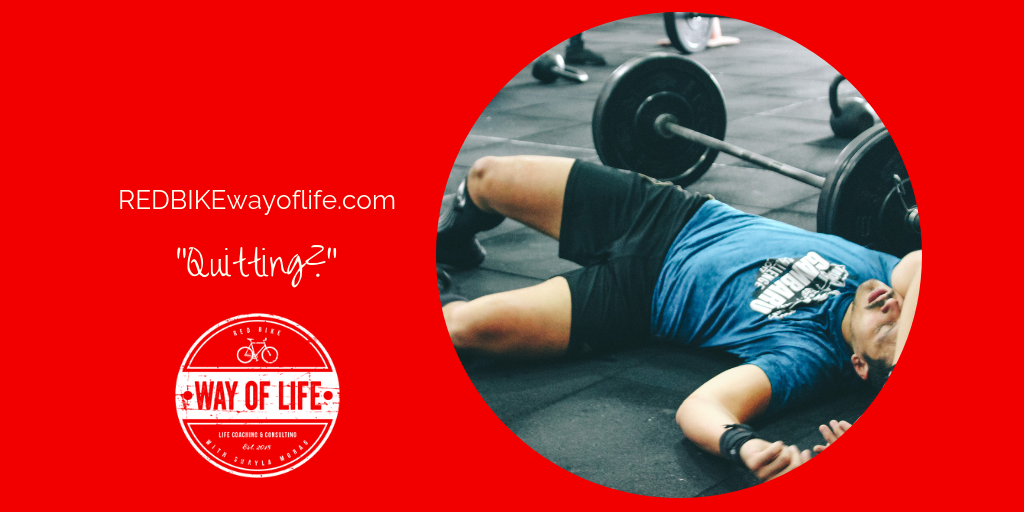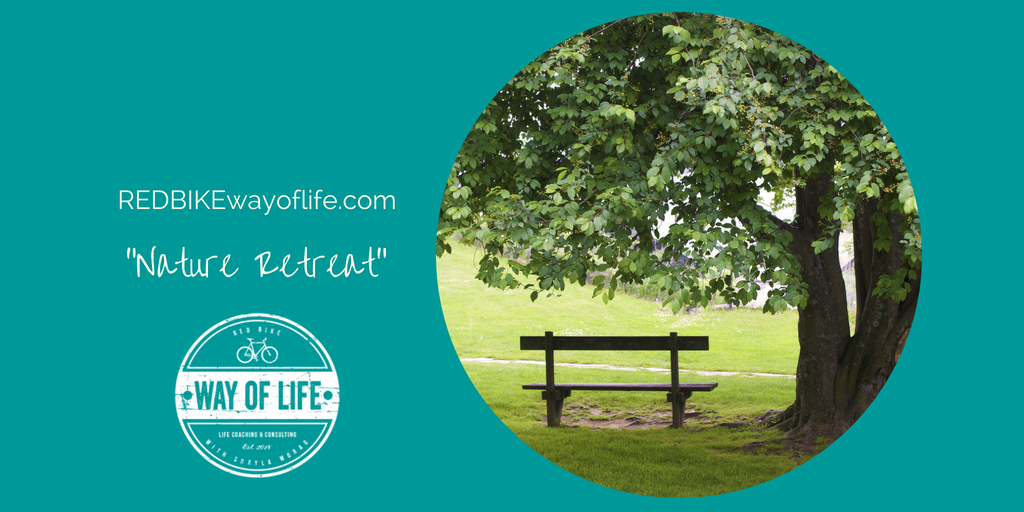
by Shayla Morag | Jun 18, 2019 | Balance, Meditation, Mindfulness, Self Care, Stress Management, The Red Bike Way
The Western world views breaks as a tool to promote laziness. But your effectiveness and efficiency will improve if you take regular breaks. You can work more intently and for more hours each day if you’ll give yourself a break at least once per hour. You won’t just get more done, you’ll be happier and less stressed, too.
Learn about the following 7 advantages of taking breaks:
1. You’ll get more done. Try a little experiment at work. First, spend a day attempting to do nothing but work for the entire day and note how much you accomplish. The following day, focus on your work for 30 minutes and then take a 5-minute break. Notice how much more you accomplish.
This applies to physical activities as well. Studies have shown the average marathon runners actually complete the race faster and more comfortably if they take regular walking breaks of up to a mile each.
2. You’ll feel much better at the end of the day. While performing the previous experiment, notice how you feel physically and mentally at the end of the day. You’ll feel nearly as good at the end of the day as you did at the beginning if you take breaks. Without breaks, you’ll feel exhausted.
3. The quality of your work is improved. The ability to focus is limited. Your mind begins to wander at some point. The quality of your work is compromised when your focus begins to wane.
Taking regular breaks is an effective way to ensure the quality of your work doesn’t suffer.
4. Breaks provide opportunities for evaluation. It’s important to regularly assess if you’re working effectively. If you put your head down and never look up, you can find yourself lost in the weeds. A break is an opportunity to re-evaluate the situation.
5. Taking a break can lower your stress. It’s important to intermittently disengage from any activity that causes stress. Your ability to work is compromised as your stress rises beyond a certain level
6. Breaks help to prevent boredom. Studies suggest that it’s more effective to regularly disengage and reengage with goals rather than focusing on them for long periods of time. The same idea applies to your work. Avoid spending too much time on one task before taking a break. You’ll maintain a higher level of interest in your work.
7. You can use your breaks to get other things done. Imagine how much you can accomplish with 8 or more 10-minute breaks each day. You could spend those 10 minutes performing an exercise or two, meditating, staying in contact with friends and family, tidying up, paying bills, or practicing the violin.
A break is a change in activity. Breaks don’t have to be spent daydreaming, though that’s not a bad way to spend a break.
You might be wondering how long a break should be and how frequently they should be taken. Science has an answer. For most people, the ideal break schedule is a 5-minute break every 30 minutes or a 10-minute break every 60 minutes. It can also be helpful to take a longer break every 2-3 hours.
Try a few different schedules and see what works for you. As a general rule, tasks that require more brainpower or muscle power require more frequent breaks.
Breaks are enjoyable way to add hours to your day. Your output will increase and you’ll also enjoy your free time more since you won’t be exhausted. Give yourself a break today and enjoy the many benefits taking regular breaks provides.

by Shayla Morag | Apr 10, 2019 | Courage, Handy Tips, Mindfulness, Self Care, Self-Talk, The Red Bike Way
Would you rather hear that you have beautiful eyes or that you’re a horrible dancer? Compliments are easy to take. Criticism isn’t quite as easy. But criticism can be invaluable to your long-term success. Criticism is nothing more than advice in disguise. You can choose to benefit from it or ignore it. However, not all criticism is accurate, well-intended, or beneficial.
Receive criticism and use it to your advantage. Check out these 9 ways to benefit:
- Change your perspective. We naturally love to hear compliments and shy away from criticism. While compliments feel good, they don’t accomplish much else. Criticism can sting, but can ultimately be extremely helpful. Learn to appreciate criticism. You might even consider seeking out criticism as a tool for learning and self-development.
- Determine if the criticism is constructive or destructive. Destructive criticism can be ignored. The other person is the issue when criticism is intended to cause harm. Constructive criticism has the potential to be helpful. Consider the source and the situation before deciding on the intention of the criticizer.
- Swallow your pride. No one enjoys hearing about their shortcomings or errors. However, criticism can be a gift. Maybe you’re learning something that would have taken years to figure out on your own. Leave your ego at the door and listen. No one is perfect.
- Take your time. There’s a tendency to responds quickly and negatively to criticism. You might have the right to be upset, but then again, you might not. Take the time to think about it before responding. If possible, sleep on it or take the weekend.
- Be compassionate with yourself. Just because you may have done something the wrong way doesn’t mean you’re less valuable as a person. Give yourself a break. Handling criticism well is one way to show yourself that you really do stand above the crowd.
- Few people can take criticism well. You’ll have a big advantage over others if you can.
- Consider the validity. When criticism comes from the right source, it’s likely to be helpful and true. Be objective and determine if there is truth to the criticism. Sometimes people are operating from false impressions. Not all criticism is valid. It’s up to you to determine if the criticism has any value.
- Incorporate the information into your life. Now you know that you can be impatient, cheap, distant, or that you’re a bad driver. Make a plan to address this issue if it’s important to you. Remember that if a trusted source was willing to bring it up, it might be important. Give it the attention it deserves.
- Determine that you’re going to do better next time. You’ll have plenty of opportunities to put your new knowledge to the test. Bide your time until that opportunity arrives. This attitude can do wonders for your self-esteem and feeling a sense of control over your life. Just keep trying to improve. There’s always tomorrow to try again.
- Be thankful. It’s not easy to give constructive criticism to a friend, employee, or family member. Be thankful that someone was willing to do that for you.
You can choose to get angry or become thoughtful when criticism comes your way. Some criticism is only intended to be hurtful and should be ignored. Constructive criticism from a trusted source can be a great learning opportunity. Consider whether the criticism is accurate and valid before applying it. Be grateful for the constructive criticism you receive. It wasn’t easy on the person providing it.

by Shayla Morag | Feb 16, 2019 | Change, Mindfulness, Self Care, Stress Management, Success, The Red Bike Way
The most successful people have an uncanny ability to keep going when everyone else would quit. Your success is tied your ability to keep working after you have the urge to quit. Quitting is a bad habit, and it’s often learned at a young age. Learn how to continue making progress no matter how strong the urge to quit grows.
Consider the reasons you feel like quitting in the first place:
- You lack energy. A lack of energy isn’t just a reason one might quit a marathon. It’s also a common reason for quitting other pursuits. Exhaustion can be physical or mental. To help counteract your exhaustion:
- Get a full night of sleep.
- Get better control over your schedule.
- Streamline your life.
- Eat more nutritious foods.
- Learn how to relax.
- You lack focus. Too many distractions can result in the desire to quit. Are you trying to accomplish too many other things? Some people can deal with more goals than others. If you feel overwhelmed, narrow your focus to your most important goals.
- It’s not that important to you. Do you have a good enough reason to keep going? Why are you doing this activity in the first place?
Remind yourself of why it’s important to keep going. Maybe the best motivation you can find is setting a good example for your children. Maybe the most important issue is self-respect. Find a good reason to continue.
Understand the reasons you feel the desire to quit. It’s natural to want to quit. And most people do. Will you be one of the few that’s able to persevere? It’s just a matter of putting one foot in front of the other until you’re finished.
Persevere when you want to quit:
- Revisit your original purpose. Is that motivation enough? If it’s not, you’ll need to find a new reason. If you can’t think of one, that might be a sign that you should be doing something else. But don’t give up too quickly. Look deeply. You’ll almost certainly find a compelling reason to continue.
- Create small successes. Nothing is more motivating than success. Set yourself up for regular success by setting easy goals that move you forward. These baby steps can result in the momentum you need to carry you to the finish line. Just focus on the immediate task and forget about the rest.
- Focus on the endpoint. The path might not be enjoyable, but the end result should be. Keep your eye on how great you’ll feel when you’ve reached the end. By focusing on the endpoint, you can maintain your motivation more easily. Visualize your ideal endpoint twice each day.
- Stay on schedule. Once your motivation begins to wane, it’s easy to lose track of your goal. Other activities seem to take over your schedule and it becomes easier to procrastinate. So, make a schedule that will ensure you stay engaged. Make time so you don’t have an excuse to quit.
- Ask yourself how you’ll feel if you allow yourself to quit. Quitting sounds good in the short-term, but we usually regret it later on. How will you feel in a week, month, or year from today if you let yourself quit?
Learn to keep going, no matter how strong the desire to quit grows. This is the best indicator of your ability to be successful. You will eventually succeed if you can continue moving toward your goal. You don’t have to quit just because you feel the urge to stop.

by Shayla Morag | May 23, 2018 | Change, Comfort, Emotional Intelligence, Freedom, Mindfulness, Self Care, Self-Compassion, The Red Bike Way
There are some people that have no trouble sharing their feelings. They are devoid of the fear and anxiety that most of us feel about sharing something personal or potentially controversial. Down deep, you’re jealous of these people. Openness provides a level of freedom that eludes those that are more private. It’s important to be able to share your feelings and concerns openly.
Your concerns can’t be addressed if you’re unwilling to share them. You have to face your challenges alone if you keep them to yourself.
Share your feelings and enjoy the resulting freedom it provides:
1. Be more accepting of others. It sounds counterintuitive, but if you’re afraid to share your feelings, you may be judgmental of others. Naturally, you would expect others to judge you, too. It’s impossible to accurately judge others. There’s always more going on than you realize. Be accepting of others and you’ll expect others to be accepting of you.
2. Start small. Share something small, but relevant. Once you see that you can share your feelings without negative repercussions, you’ll be more likely to share them again.
3. Determine the source of your fear. You may fear judging, rejection, ridicule, or embarrassment. Perhaps attacking that fear is the first logical step to lessening your anxiety around sharing and openness.
4. Be brave. There’s no way to be 100% comfortable about sharing your feelings until you’ve done it several times. There’s a certain amount of courage required at the beginning. Be brave enough to share your feelings. It becomes easier over time.
5. Encourage others to share their feelings with you. You might feel more comfortable if your conversation partner goes first.
6. Stay in the present moment. You generate feelings of fear by worrying about the possible outcomes. Stay in the moment, and your fear will dissipate. Avoid imagining the worst possible outcome.
7. Calibrate the other person. Others are often careless when they believe something doesn’t matter. You’ll find that others are more empathetic and understanding if you let them know that something is important to you. It can be as simple as, “I want to tell you about something that’s important to me.” Put others in the proper state of mind before you share.
8. Be honest. The willingness to make yourself vulnerable will enhance your results. If you’re sharing something that displeases you about the other person, it’s important to empathize first. Sharing your feelings requires consideration of the other person’s feelings, too.
9. Take a deep breath and just do it. The anticipation is usually worse than the actual event. Sometimes, you just have to go for it. You can do it. Focus on how much better you’ll feel afterwards.
Change isn’t easy. Sharing can be scary, but the benefits outweigh the anxiety experienced. In time, you’ll learn to share your feelings and worries more easily. It just takes practice. Focus on the benefits you’ll receive and let the words flow. The other person will appreciate your effort and you’ll find that you get what you want more often.

by Shayla Morag | May 22, 2018 | Change, Comfort, Grief, Mindfulness, Self Care, Self-Compassion, Stress Management, The Red Bike Way
The complications and ups and downs of modern life can leave you feeling stressed and lonely, but the solution is sometimes surprisingly simple. A recent study found that visiting a park for at least 30 minutes a week significantly reduces the risk of depression. Scientists in Australia found further evidence of what researchers have been saying for years. Connecting with nature enhances your physical, mental, and social well being.
If you want to help prevent depression, check out these handy tips. You’ll find ideas for making the most of your local park, and discover other ways to commune with nature.
Benefits of Parks and Other Natural Settings
1. Increase your happiness. Whether it’s a spectacular waterfall or a simple flower bed, we appreciate the beauty and order in our surroundings.
2. Boost your health. Spending time in parks has been shown to lower high blood pressure and reduce the risk of hypertension and heart disease. Being outdoors can also help you lose weight and sleep well if it increases your physical activity and exposure to morning light.
3. Socialize more. Parks bring together citizens from different walks of life. Whether you’re people watching or flying a kite, you share a positive experience.
Ideas for Using Your Local Park
1. Work out. Today’s parks often offer much more than jogging trails. Look for circuit training stations, softball fields, and tennis courts. Exercise requires less effort when you’re admiring the scenery.
2. Eat lunch. Squeeze a break into your busy schedule by eating lunch outdoors. Packing a bag lunch usually cuts costs and calories compared to most restaurants.
3. Attend events. Check the calendar on your park’s website. You may find free concerts, movies, and family events.
4. Pause to think. Find a comfortable place to sit and breathe.
5. Clean up. Now that you realize how much your park does for you, you may want to give something back. Join volunteer programs that pick up garbage, plant trees, or conduct tours for school children.
More Tips for Enjoying Nature
1. Take a walk. What can you do if there’s no park nearby? Stroll around the neighborhood or a local college campus.
2. Plan your vacation. Go camping or incorporate outdoor activities into any vacation. You can rent bikes or kayaks. Breakfast on the beach or go horseback riding in the mountains.
3. Tend your garden. Growing your own food and flowers is a great way to increase your gratitude for the earth. Plant tomatoes in your back yard or share a community plot.
4. Go for a dip. While green spaces provide impressive benefits, blue spaces may be even more powerful. Spend some time near water. Install a fountain in your back yard or ask a hotel if you can purchase a pool membership. Some facilities offer discounts for local residents.
5. Bring your pet. Observing wild animals is entertaining and educational as long as you take reasonable safety precautions. If you want to interact more closely, walk your dog or play Frisbee together.
6. Gaze at stars. Learn about science the fun way while you stimulate your sense of wonder. Shop for a basic telescope or check the calendar for public programs at community observatories.
7. Redecorate your home. For rainy days, invite the outdoors in. Arrange your furniture so you sit by a window with a view. Set out fresh flowers or pretty seashells.
Talk with your doctor if you’re experiencing symptoms of depression that interfere with your daily life. Otherwise, increasing your exposure to green and blue spaces may be all you need to lift your spirits and stay fit.

by Shayla Morag | May 10, 2018 | Change, Comfort, Emotional Intelligence, Mindfulness, Patience, Persistence, Self Care, Self-Compassion, The Red Bike Way
There are times when we feel we have just had enough. Whether it’s a bad job, a family crisis, or a horrible diet, there are times we all consider quitting. Quitting isn’t always a bad choice. We’ve been taught to believe that quitting is synonymous with failure, but some activities or relationships aren’t worth continuing. It’s important to arrive at a decision to quit or continue consciously, rather than making a reflective decision.
Avoid quitting prematurely:
1. Hit the pause button. Most poor decisions could be avoided by taking a short pause. When you’re stressed, overworked, overtired, and fed-up, rash decisions become the norm. Give yourself the time you need to make a wise decision. Allow your head to clear before you make a decision that changes your life. Most decisions can wait.
2. View the situation objectively. Try to be objective and weigh the situation carefully. Enlist the help of a friend if necessary. It can be easier to evaluate someone else’s situation accurately than your own.
3. Consider the worst-case scenario. Think long-term. Quitting is an easy choice when you only consider the short-term ramifications. You can relieve your stress almost immediately! However, what are the long-term consequences? If you quit your job, what will happen if you can’t find another one?
- Reconsider quitting if the long-term consequences are too severe. A little relief now isn’t worth long-term pain.
- Who will be impacted by your quitting? Your boss? Coworkers? Family? The members of your church softball team? Who is affected?
- What message are you sending to your children? What would you recommend to a child in a similar circumstance? Your children are always watching. Be sure to set a good example.
4. Ask yourself if a new approach is warranted. Maybe you shouldn’t quit. Maybe you need a new plan. Not getting the results you desire isn’t necessarily a sign that you should call it quits. Poor results indicate an ineffective process. Perhaps all you need is a tweak to your approach. Major accomplishments are accompanied by numerous failed attempts.
5. Ask yourself why you’re considering quitting. Is it because you don’t believe you can be successful? You don’t have the resources you require? Do you not enjoy the job, activity, or relationship in question? Are you lacking the necessary time?
- Some reasons for quitting are better than others. Quitting a second job you don’t need so you can spend more time with your children is a good reason to quit. Ending your marriage because your spouse won’t pick up his dirty socks might be a bit extreme.
- Is there another solution besides quitting?
6. Consider the times you’ve given up in the past. How do you feel about those events today? Was quitting a good idea or do you regret it? How are you likely to feel in the future about quitting in your current situation?
7. Sometimes it’s necessary to lower your head and keep going. There are times when quitting is the best choice. However, when it’s not the best choice, it’s necessary to be strong and keep going. Stick with that horrible job until you have something else lined up. Give counseling a try before quitting on another relationship.
- If your default coping mechanism is quitting, you’ll never accomplish anything.
Take a moment before making a hasty decision. Quitting isn’t to be taken lightly. Before making the decision to quit, consider the consequences, consult with a trusted friend, and consider your history. In some instances, quitting is final. Avoid creating long-term challenges to alleviate stress in the short-term. Give yourself the time you require to make a wise decision.







